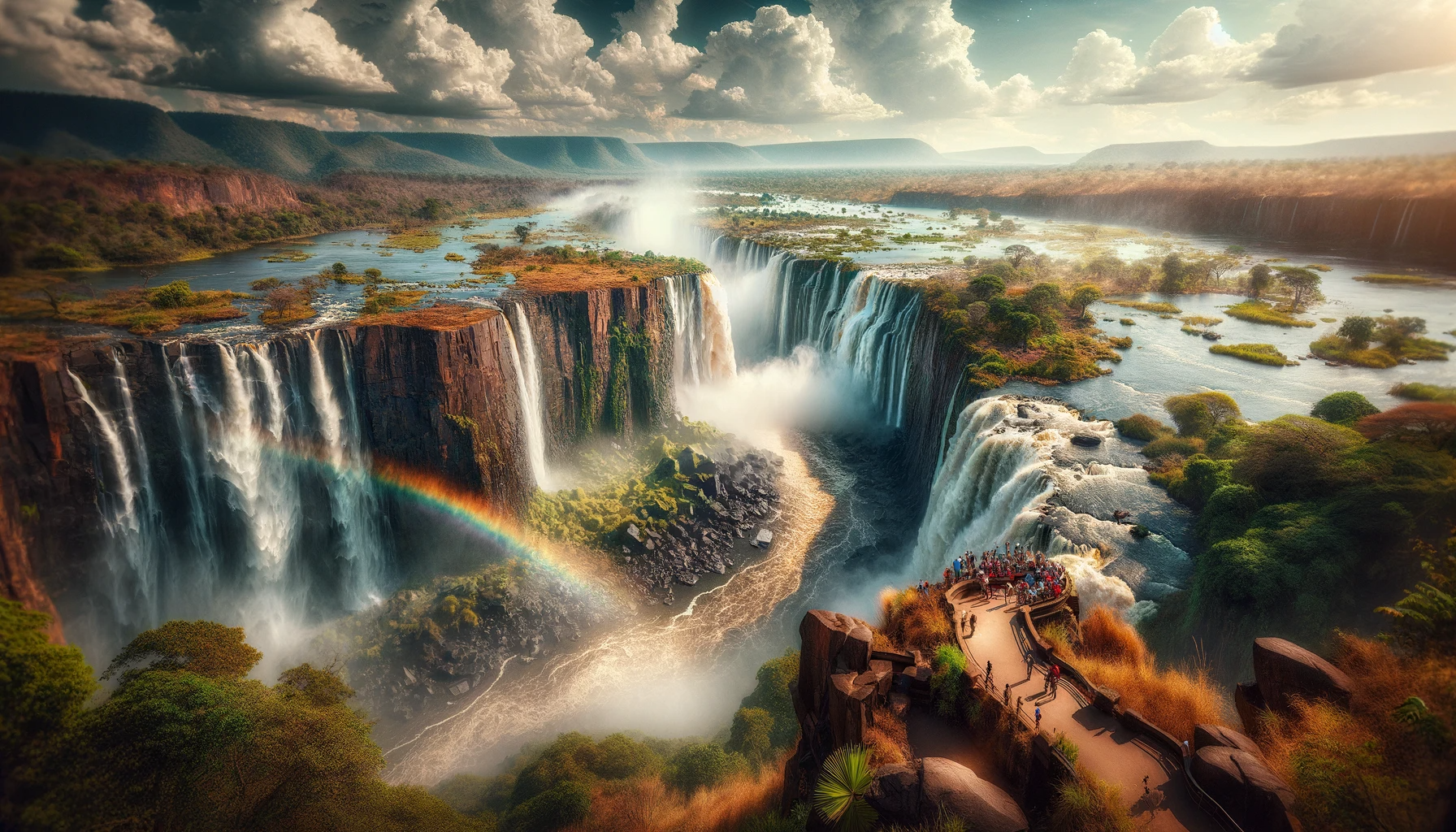Zimbabwe, located in Southern Africa, is renowned for its stunning landscape and diverse wildlife, much of which can be found in parks, reserves, and safari areas. The Victoria Falls, one of the largest and most spectacular waterfalls in the world, is the country’s most famous landmark. Zimbabwe’s rich history, exemplified by the ancient city of Great Zimbabwe, adds to its allure.
Public and National Holidays in Zimbabwe in 2025
- New Year’s Day is on Wednesday, 1st January 2025.
- Robert Mugabe National Youth Day is on Friday, 21st February 2025.
- Independence Day is on Friday, 18th April 2025.
- Good Friday is on Friday, 18th April 2025.
- Easter Saturday is on Saturday, 19th April 2025.
- Easter Sunday is on Sunday, 20th April 2025.
- Easter Monday is on Monday, 21st April 2025.
- Workers’ Day is on Thursday, 1st May 2025.
- Africa Day is on Sunday, 25th May 2025.
- Heroes’ Day is on Friday, 8th August 2025.
- Defense Forces Day is on Tuesday, 12th August 2025.
- National Unity Day is on Monday, 22nd December 2025.
- Christmas Day is on Thursday, 25th December 2025.
- Boxing Day is on Friday, 26th December 2025.
Public and National Holidays in Zimbabwe in 2024
- New Year’s Day: Monday, 1 January 2024
- Robert Mugabe National Youth Day: Wednesday, 21 February 2024
- Good Friday: Friday, 29 March 2024
- Easter Sunday: Sunday, 31 March 2024
- Easter Monday: Monday, 1 April 2024
- Independence Day: Thursday, 18 April 2024
- Workers’ Day: Wednesday, 1 May 2024
- Africa Day: Saturday, 25 May 2024
- Heroes’ Day: Monday, 12 August 2024
- Defense Forces Day: Tuesday, 13 August 2024
- National Unity Day: Sunday, 22 December 2024
- National Unity Day Holiday: Monday, 23 December 2024
- Christmas Day: Wednesday, 25 December 2024
- Boxing Day: Thursday, 26 December 2024
Zimbabwe: A Nation of Resilience and Natural Beauty
Zimbabwe is a landlocked country in Southern Africa with a rich cultural heritage, stunning landscapes, and a history of resilience.
Zimbabwe’s history is intertwined with the rise and fall of ancient African kingdoms. The Great Zimbabwe Ruins, a UNESCO World Heritage site, testify to a once-thriving civilization. During the colonial era, Zimbabwe was under British rule until it gained independence in 1980, with Robert Mugabe becoming the nation’s first prime minister.
Geopgraphy of Zimbabwe
Zimbabwe has diverse geography, situated between the Zambezi and Limpopo Rivers. One of the world’s largest waterfalls, the iconic Victoria Falls, is a major attraction. Zimbabwe boasts national parks such as Hwange and Matobo, which provide excellent opportunities to observe wildlife and admire captivating rock formations.
Culture of Zimbabwe
The country’s culture is deeply rooted in its African heritage, with a strong emphasis on Shona and Ndebele traditions. Traditional music, dance, and art are integral to the national identity. Zimbabwe’s official languages are English, Shona, and Sindebele. The stone sculptures and vibrant crafts produced in the country are globally recognized.
Economy of Zimbabwe
Zimbabwe’s economy has faced challenges in the past, including hyperinflation. Key sectors include agriculture, mining (especially gold and platinum), and tourism. Ongoing economic reforms and stabilization efforts aim to attract investment and promote growth.

Zimbabwe is a republic with the president serving as both the head of state and government. The country has undergone significant political changes, including the land reform program and efforts to restore democratic governance.
Population of Zimbabwe
The population is diverse, consisting of various ethnic groups and languages. Social issues such as healthcare and education are prioritized. Although challenges such as unemployment and access to basic services persist, there is also a sense of resilience and hope.
Art and Culture of Zimbabwe
Additionally, Zimbabwe boasts natural wonders that attract tourists.
Zimbabwe’s arts scene is vibrant, with a strong tradition in storytelling, music, and visual arts. Musicians like Oliver Mtukudzi have achieved international acclaim. The country’s literature and theater also reflect its dynamic culture.
Highlights of Zimbabwe
Zimbabwe’s natural beauty draws tourists from all over the world. In addition to Victoria Falls, visitors can explore the country’s national parks, go on safaris, and participate in cultural festivals.

